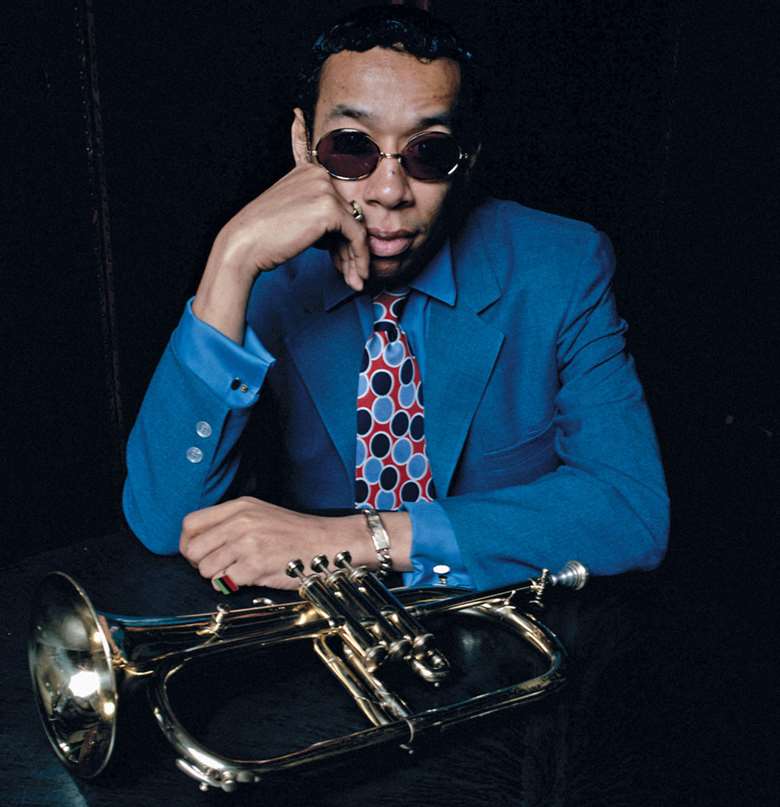Who was Lee Morgan?
In the rich tapestry of jazz history, certain names shine brightly, their music reverberating through the decades. Among these luminaries stands Lee Morgan, a trumpet virtuoso whose brilliance and creativity left an indelible mark on the genre. From his early years as a teenage prodigy to his tragically premature death, Morgan's life was a testament to the power of music to uplift and inspire.

Born on July 10, 1938, in Philadelphia, Pennsylvania, Edward Lee Morgan showed an early aptitude for music. Raised in a supportive musical household, Morgan began playing the trumpet at a young age, quickly demonstrating a natural talent and an intuitive understanding of the instrument. By the time he was a teenager, he was already making a name for himself on the Philadelphia jazz scene, catching the attention of legendary musicians such as Dizzy Gillespie and Clifford Brown.
Morgan's meteoric rise to prominence began in earnest when he joined the Dizzy Gillespie Big Band at the age of 18. Under Gillespie's mentorship, Morgan honed his skills as a soloist and composer, absorbing the bebop vocabulary while also forging his own distinct voice on the trumpet. His dynamic playing style, characterized by his dazzling technique, soulful lyricism, and brassy tone, quickly set him apart as one of the most exciting young talents in jazz.
In 1956, Morgan signed with Blue Note Records, one of the premier jazz labels of the time, launching a prolific recording career that would span over two decades. His early recordings as a leader, including albums like "The Cooker" and "Lee Morgan Indeed!", showcased his formidable talents as both a performer and a composer. Tracks like "Ceora," "The Sidewinder," and "Search for the New Land" became instant classics, capturing Morgan's infectious energy and melodic invention.
One of Morgan's most enduring contributions to jazz was his role in the development of the hard bop style. Alongside fellow musicians such as Art Blakey, Horace Silver, and Hank Mobley, Morgan helped shape the sound of the genre, infusing it with elements of blues, gospel, and R&B. His collaborations with the Jazz Messengers, led by Blakey, yielded some of the most electrifying recordings of the era, showcasing Morgan's fiery improvisations and inventive compositions.
Despite his prodigious talent and early success, Morgan's life was not without its struggles. Like many jazz musicians of his generation, he battled addiction throughout much of his career, a struggle that would ultimately contribute to his untimely death. Tragically, on February 19, 1972, at the age of 33, Morgan was shot and killed by his common-law wife during a confrontation at a jazz club in New York City.
While Morgan's life was cut short far too soon, his legacy as one of the greatest trumpet players in the history of jazz endures. His recordings continue to inspire and captivate audiences around the world, serving as a testament to his enduring talent and creativity. Moreover, his influence can be heard in the playing of countless trumpet players who have been inspired by his innovative approach to the instrument.
If you are interested in learning music check out our Music Lessons in Tulsa.
Beyond his musical contributions, Morgan's life serves as a reminder of the challenges faced by many jazz musicians, both in the pursuit of their art and in their personal lives. His struggles with addiction and his tragic death underscore the often precarious nature of life in the jazz world, where talent and brilliance can sometimes be overshadowed by personal demons and societal pressures.
As we celebrate the legacy of Lee Morgan, let us remember him not only as a brilliant musician but also as a complex and deeply human figure. His music touched the lives of millions and continues to resonate with audiences of all generations. In the end, it is perhaps the power of his music to transcend time and space that serves as the ultimate testament to his enduring legacy in the annals of jazz history.
If you like this check out our article: Who was Art Blakey?
